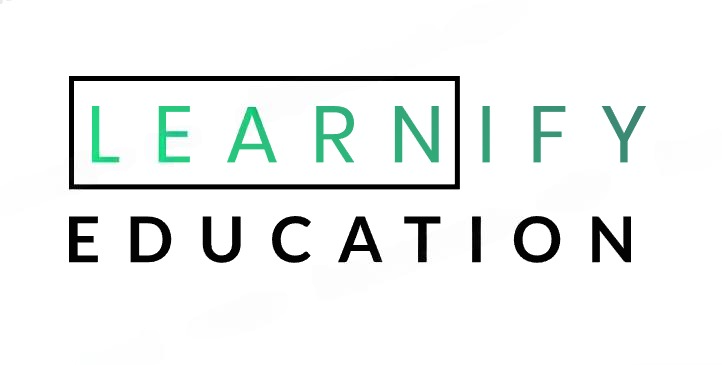Top 25 Machine Learning Interview Questions in 2025
Compare India’s leading universities on a single platform within two minutes. Online MBA for job professionals 100 + Universities 30X comparison factors Free expert consultation Quick Loan facility Post Admission Support Learnify Exclusive Community Job + Internship Portal No-Cost EMI From ₹5100/- Subsidy Available upto ₹20,000/- Machine Learning (ML) is one of the most sought-after skills in the technology sector. Companies worldwide are leveraging ML to build smarter systems, automate tasks, and extract insights from data. If you’re preparing for an ML job interview in 2025, you need to be well-versed in key concepts, algorithms, and applications. This guide presents the Top 25 Machine Learning Interview Questions with detailed explanations, helping you crack your next interview with confidence. What is Machine Learning? Machine Learning is a subset of Artificial Intelligence (AI) that enables computers to learn from data and make predictions or decisions without explicit programming. Types of Machine Learning Supervised Learning: Algorithms are trained using labeled data (e.g., Linear Regression, Decision Trees). Unsupervised Learning: Algorithms learn patterns from unlabeled data (e.g., Clustering, PCA). Reinforcement Learning: Learning through trial and error by interacting with an environment. Basic Machine Learning Concepts 1. Difference between AI, ML, and Deep Learning? AI (Artificial Intelligence) is the broadest term, enabling machines to think like humans. ML (Machine Learning) is a part of AI that helps machines learn from data without direct programming. Deep Learning is an advanced type of ML that uses neural networks to handle complex tasks like face recognition. 2. What is Overfitting and how to prevent it? Prevention Techniques: Cross-validation Regularization (L1, L2) Reducing model complexity Increasing training data 3. Explain the Bias-Variance Tradeoff. High Bias: Model is too simple and underfits. High Variance: Model is too complex and overfits. Solution: Find a balance by adjusting hyperparameters and using techniques like ensemble learning. Machine Learning Algorithms 4. What is Logistic Regression and how does it work? Logistic Regression is a classification algorithm that predicts probabilities using the sigmoid function. 5. What are Decision Trees and Random Forests? Decision Tree: A flowchart-like structure where decisions are made based on feature values. Random Forest: An ensemble method using multiple decision trees to improve accuracy. 6. Explain Support Vector Machines (SVM). SVM is a classification algorithm that finds the optimal hyperplane to separate data points into different classes. Model Evaluation and Metrics 7. What is a Confusion Matrix? A Confusion Matrix is used to evaluate classification models and consists of: True Positives (TP) True Negatives (TN) False Positives (FP) False Negatives (FN) 8. Explain Precision, Recall, and F1-Score. Precision: TP / (TP + FP) Recall: TP / (TP + FN) F1-Score: Harmonic mean of Precision and Recall 9. What is ROC-AUC? The ROC (Receiver Operating Characteristic) curve shows the tradeoff between sensitivity and specificity. AUC (Area Under Curve) measures model performance. Optimization and Regularization 10. What is Gradient Descent? Gradient Descent is an optimization technique used to minimize a loss function by iteratively updating model parameters. 11. What is Regularization in ML? Regularization helps prevent overfitting by adding penalties to large coefficients. L1 Regularization (Lasso Regression) – Shrinks coefficients to zero. L2 Regularization (Ridge Regression) – Reduces coefficient magnitude. Feature Engineering & Selection 12. What is Feature Engineering? Feature Engineering involves transforming raw data into meaningful features to enhance model performance. 13. What is Feature Selection and why is it important? Feature Selection involves identifying the most relevant features, improving model accuracy while reducing computation time. Advanced Machine Learning Concepts 14. Explain the Curse of Dimensionality. When the number of features increases, data sparsity makes models inefficient and prone to overfitting. 15. What is Principal Component Analysis (PCA)? PCA is a dimensionality reduction technique that transforms high-dimensional data into fewer components while preserving variance. 16. Explain Ensemble Learning. Ensemble Learning combines multiple models to improve performance. Bagging (Bootstrap Aggregating) – Reduces variance (e.g., Random Forest). Boosting – Reduces bias by training sequential models (e.g., AdaBoost, Gradient Boosting). Neural Networks and Deep Learning 17. What are Neural Networks? Neural Networks are mathematical models designed to recognize patterns by mimicking the structure of the human brain. 18. What are the types of Activation Functions? Sigmoid ReLU (Rectified Linear Unit) Tanh Softmax 19. What is Transfer Learning? Transfer Learning involves reusing a pre-trained model for a new task, saving computation time and improving performance. Natural Language Processing (NLP) 20. What is NLP and how is it used in Machine Learning? NLP enables computers to understand and process human language. Applications include Chatbots, Sentiment Analysis, and Machine Translation. Reinforcement Learning 21. What is Reinforcement Learning (RL)? RL involves training an agent through rewards and penalties. Applications include robotics and gaming. 22. Explain Markov Decision Process (MDP). MDP is a framework used in RL, consisting of states, actions, rewards, and transitions. Model Deployment 23. What are the steps to deploy a Machine Learning model? Train and save the model. Convert it into an API using Flask or FastAPI. Deploy on cloud platforms like AWS, GCP, or Microsoft Azure. 24. What is Model Monitoring? Model Monitoring ensures deployed models remain accurate and are retrained when needed. 25. What are the best tools for Machine Learning? TensorFlow PyTorch Scikit-Learn Keras Conclusion These Top 25 Machine Learning Interview Questions cover essential topics to help you prepare for interviews in 2025. Keep practicing, stay updated with new advancements, and work on real-world projects to strengthen your ML skills!














